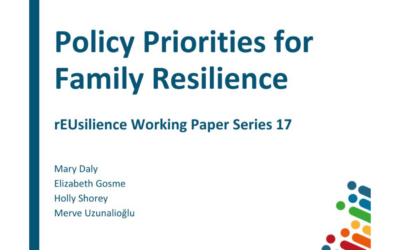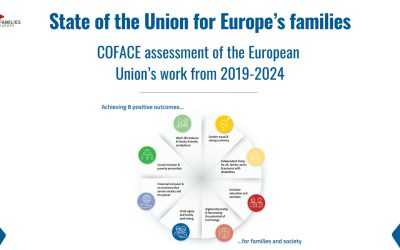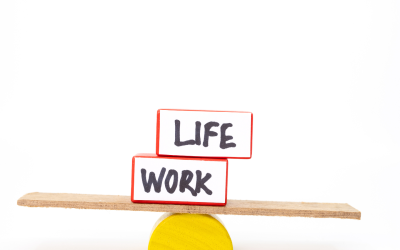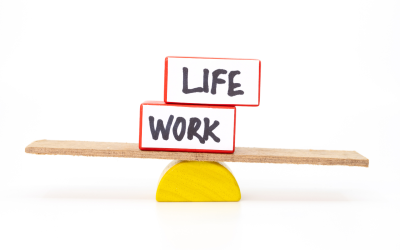A newly published working paper by rEUsilience takes a closer look at how EU and national policies can better support family resilience through practical and research-informed reforms.
Tag:
Sweden expands parental leave to grandparents and friends
In Sweden, new parental leave has been extended to grandparents and friends. New rules now allow parents to transfer up to 45 days of their paid leave to someone who isn’t the child’s legal guardian – such as a relative or a friend – as long as the person is insured for parental allowance.
State Of The European Union for Families: COFACE assessment of the European Union’s work from 2019-2024
In 2019, COFACE Families Europe mobilised voters locally through its member organisations (representing families of all types, without discrimination). These recommendations are addressed at EU-level policymakers in the European Commission, European Parliament and Council of the EU, from whom we expect joint leadership to ensure tangible results for Europe’s citizens. It is on this basis that we have assessed the European Union’s work from 2019 to 2024, and how it contributes to achieving eight positive outcomes for families of today.
Equal at home – Equal at work: Share the Care reflects on Poland’s Work-Life Balance Directive anniversary
As Poland marks the one-year anniversary of the implementation of the Work-Life Balance Directive, questions arise about its impact on gender equality in both professional and family spheres. Do women and men feel more equal in their professional and family lives?
#MakeItWork – a campaign from the European Commission to promote work-life balance
The #MakeItWork campaign, spearheaded by the Commission, is dedicated to championing the importance of achieving a harmonious work-life balance. Through this initiative, the Commission strives to raise awareness about the significance of balancing professional commitments with personal and family responsibilities.
KMOP’s Better-Balance Guide – A Resource for Work-Life Balance
The Covid-19 pandemic has brought with it a series of challenges. One of these includes the effect it has taken on women and their work-life balance. The Balance Project, of which COFACE member KMOP is part of, aims to support and equip women and their workplace leaders to better manage work-life balance.
Thematic Note on Ageing Family Carers
Principle 18 of the European Pillar of Social Rights stresses: the right to affordable long-term care services of good quality, in particular homecare and community-based services. Since its adoption in 2017, the European Union has been looking more intensively at the topic of Long-Term Care (LTC), most notably with the adoption in 2022 of the European Care Strategy and the Council Recommendation on Long-Term Care. In this important time, COFACE Disability Platform launch this thematic note to spark the debate on the diversity of family carers. While the lion’s share of family carers are currently of working age and need urgent actions to support them.
A Better Work–Life Balance: Bridging the gender care gap
Care is a fundamental aspect of our lives, as everyone will either require or provide care at some point. Gender inequalities in informal care and its implications for carers and the labour market is of major concern in the EU. The COVID-19 pandemic has shed light on the significance of formal care services, unveiling the vulnerabilities of care systems. Failure to address the existing deficiencies in care provision and access to formal care services could result in a future care crisis and exacerbate gender inequalities.
OPINION – Empowering Parenthood: How the Work-Life Balance Directive reshapes parental Leave in Poland
On 23rd of March 2023, the President of Poland signed the bill implementing the work-life balance directive in Poland and the new regulation came into force on 26th of April 2023. This marks, two years of advocacy work led by Share the Care foundation coming to an end.
EU Work-life Balance Directive transposition in action – A mixed picture: From non-compliance and basic minimum standards to ambitious reforms for modern gender-responsive family policies
The EU Work-life Balance Directive is the first legislative initiative that follows the launch of the European Pillar of Social Rights in 2017 and was formally adopted two years later in 2019. COFACE Families Europe expects high ambitions from the different EU institutions and national governments in the implementation of the European Pillar of Social Rights, as a stepping stone to develop a framework for a more social and fairer European Union.
Key updates on the EU Work-life balance directive transposition
All EU countries had until the 2nd of August 2022 to bring into force the laws, regulations, and administrative provisions necessary to comply fully with the Work-life balance Directive. The Directive contains legal elements that acknowledge the diversity of families in the 21st century, for instance with the mention of “equivalent second parent” under the paternity leave article.











